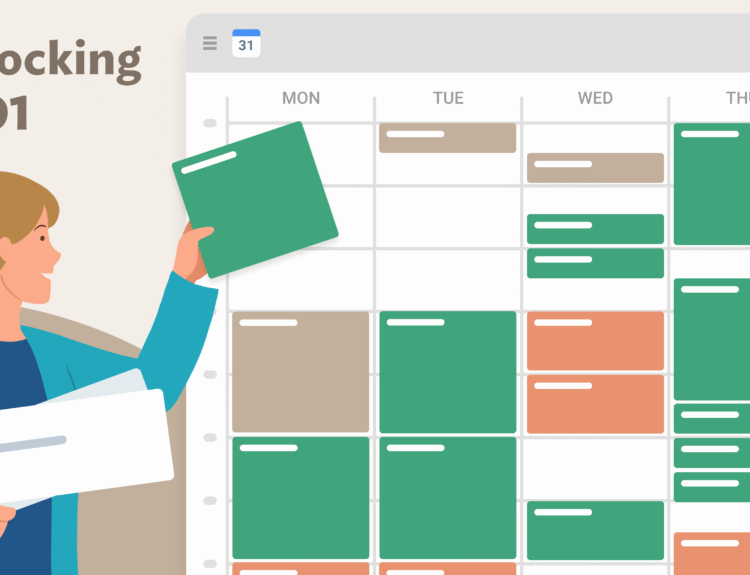In today’s fast-paced, tech-driven world, it’s easy to feel like we’re always connected. From scrolling through social media and checking emails to constantly being plugged into work, our devices have become indispensable parts of our daily lives. However, this constant connectivity can have a significant impact on our mental, emotional, and physical well-being. Enter the concept of digital detoxing – a deliberate and mindful break from screens and technology.
Digital detoxing isn’t about disconnecting permanently or rejecting technology entirely. It’s about creating boundaries, managing our tech use, and reestablishing a healthy balance between the digital and the real world. Taking regular breaks from screens can improve our productivity, enhance our mental health, and lead to greater life satisfaction. Let’s explore the benefits of digital detoxing and why you should consider taking time off from your devices.
1. Reduces Stress and Anxiety
One of the most significant benefits of digital detoxing is the reduction in stress and anxiety. We live in a world where constant notifications, news updates, and social media posts can overwhelm our minds. The pressure to stay connected and be constantly updated can contribute to feelings of anxiety and burnout.
When you disconnect from your devices, you give your brain the opportunity to reset. Without the constant influx of information and expectations, you can enjoy a sense of calm and relaxation. The absence of notifications allows you to focus on the present moment without the distraction of the outside world.
Studies have shown that limiting screen time, especially on social media, can reduce cortisol levels, the stress hormone, and improve overall well-being. Taking a digital detox gives you space to recharge your mental batteries, lower anxiety, and gain clarity.
2. Improves Sleep Quality
We all know how tempting it is to check our phones right before bed, but this habit can be detrimental to our sleep quality. The blue light emitted by screens interferes with the production of melatonin, the hormone that regulates sleep. As a result, staying on your devices late at night can make it harder to fall asleep and lead to poor sleep quality.
A digital detox, especially in the evening hours, can significantly improve your sleep patterns. By reducing screen time before bed, you allow your body to wind down naturally, leading to better sleep quality, deeper rest, and a more refreshed feeling when you wake up.
To improve your sleep, try setting a digital curfew—an hour or two before bed where all devices are put away. Instead, engage in relaxing activities like reading, journaling, or meditating. Your mind and body will thank you for it.
3. Enhances Productivity and Focus
It’s no secret that digital distractions can hinder our ability to focus. Constantly checking emails, messages, and social media can interrupt our workflow and reduce our productivity. It’s easy to fall into the trap of multitasking, but research has shown that multitasking often leads to reduced efficiency and higher stress levels.
By taking regular breaks from digital devices, you give yourself the opportunity to focus on one task at a time. Whether it’s a work project, a hobby, or spending quality time with loved ones, digital detoxing allows you to be fully present and more engaged with your tasks. As a result, you may find that you’re able to accomplish more in less time, without the mental fatigue that comes from constant digital interruptions.
4. Promotes Better Relationships
In our hyper-connected world, technology can sometimes interfere with our personal relationships. We’re all guilty of texting while talking to someone in person, or scrolling through social media while spending time with family. These habits can cause us to be less present, leading to misunderstandings and weakened connections.
A digital detox encourages more meaningful, face-to-face interactions. When you unplug from your devices, you can focus on being fully present with the people around you. Whether it’s engaging in a conversation, sharing a meal, or simply enjoying quality time, digital detoxing can improve the depth and quality of your relationships.
Additionally, by creating tech-free zones (like during meals or family time), you set healthy boundaries that prioritize human connection over virtual interactions.

5. Improves Mental Health and Well-Being
Constant exposure to screens, particularly social media, can take a toll on your mental health. The constant comparison to others, fear of missing out (FOMO), and the pressure to maintain a certain online image can lead to feelings of inadequacy, depression, and anxiety.
A digital detox allows you to step away from these negative influences and reframe your perspective. Without the constant bombardment of curated lives and images, you may find that you feel more content and connected to your authentic self. You’ll be able to refocus on real-life accomplishments, relationships, and experiences that genuinely matter.
Taking breaks from screens also provides a valuable opportunity for mindfulness. You can spend more time practicing self-care, engaging in hobbies, and cultivating gratitude—all of which contribute to improved mental health and a positive outlook on life.
6. Encourages More Time Outdoors and Physical Activity
Spending too much time on devices often leads to a sedentary lifestyle, which can contribute to various health issues, such as poor posture, weight gain, and increased risk of chronic conditions. A digital detox, however, encourages you to spend more time outdoors and be active.
Without the lure of screens, you’re more likely to engage in physical activities like going for a walk, hiking, cycling, or simply enjoying a park. Fresh air, sunlight, and exercise all contribute to improved physical health, and they also boost your mood and energy levels. A digital detox gives you the space to reconnect with nature and take care of your body.
7. Boosts Creativity and Problem-Solving Skills
Constantly being plugged into devices can limit your ability to think creatively. Our brains are always reacting to external stimuli, whether it’s notifications or the latest viral trend. A digital detox, however, can help you tap into your creative potential by allowing your mind the space to wander and explore new ideas.
Without digital distractions, your brain is free to engage in deep thinking, which can improve problem-solving skills and spark innovative ideas. Many people report feeling more creative after a digital detox, as they are no longer constantly consumed by external information and influences.
8. Restores Balance in Your Life
The most important benefit of digital detoxing is the restoration of balance. In a world that’s always “on,” it can be easy to lose sight of what truly matters—our well-being, relationships, and passions. A digital detox allows you to take a step back and reassess your priorities.
By taking time away from screens, you can refocus on what brings you joy, fulfillment, and peace. It gives you the opportunity to reconnect with your inner self, create healthy habits, and make more mindful decisions about how you engage with technology in the future.
How to Do a Digital Detox
If you’re wondering how to implement a digital detox, here are a few tips to get started:
- Set Specific Boundaries: Decide on the length of your detox (e.g., 24 hours, a weekend, or a week) and set clear boundaries around device usage. You can also choose specific times of day (e.g., mornings or evenings) to unplug.
- Declutter Your Devices: Clear unnecessary apps and notifications from your devices to reduce temptation. Unsubscribe from email lists and set up automatic email replies to let people know you’re taking a break.
- Engage in Offline Activities: Use the time you’d normally spend on screens to engage in offline activities, such as reading, journaling, exercising, or spending time with loved ones.
- Practice Mindfulness: Use this time to reconnect with your body and mind. Practice meditation, mindful breathing, or simply sit in silence to reflect and recharge.
- Be Gentle with Yourself: Digital detoxing can be challenging, especially if you’re used to constant connectivity. Be kind to yourself, and remember that the goal is to restore balance, not to punish yourself.
Conclusion
In a world that constantly demands our attention, digital detoxing offers an opportunity to reclaim our time, focus, and mental well-being. The benefits of taking a break from technology go beyond just reducing stress—they also enhance productivity, improve relationships, boost creativity, and allow for greater personal growth.
While technology can enrich our lives in many ways, it’s essential to find balance and set boundaries that protect our mental, emotional, and physical health. By taking time for a digital detox, you’ll experience a deeper sense of peace, clarity, and connection with yourself and the world around you.
So, the next time you feel overwhelmed or disconnected, consider stepping away from your devices for a while. Your mind, body, and soul will thank you.







